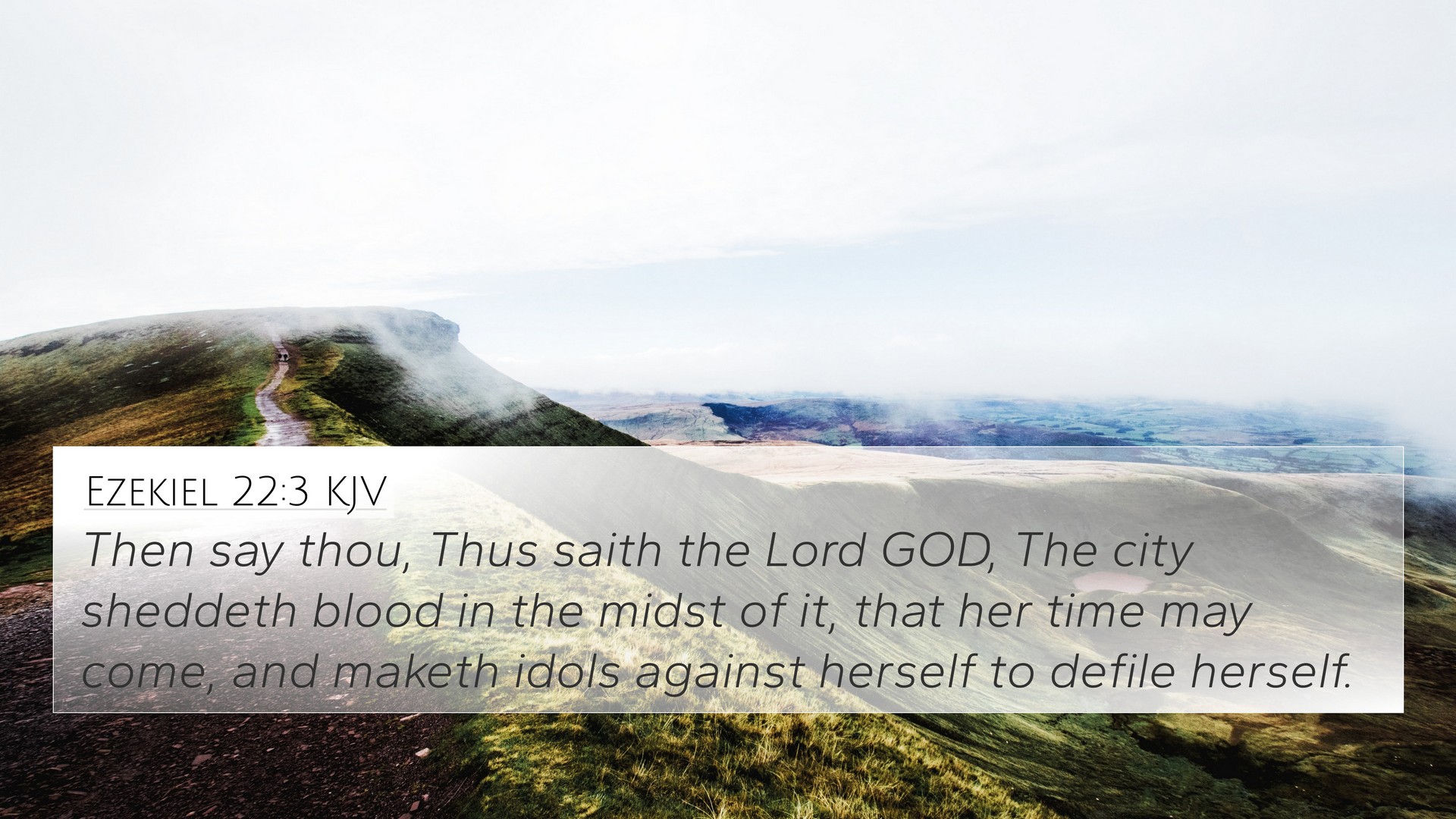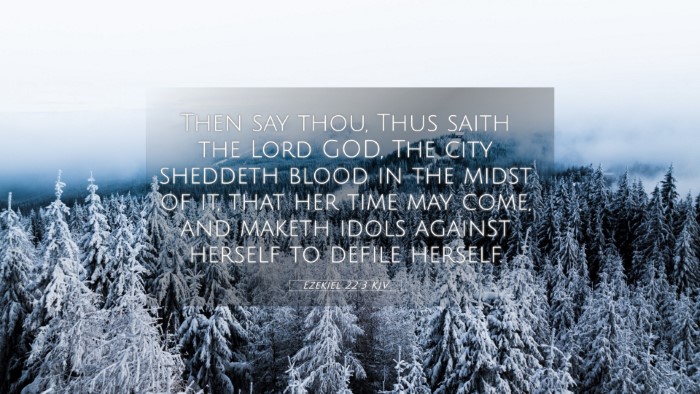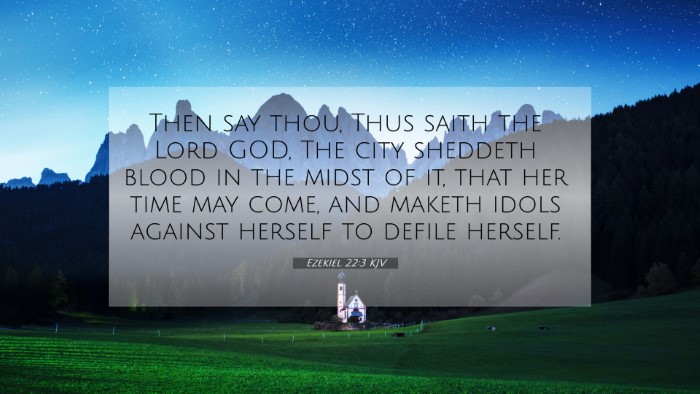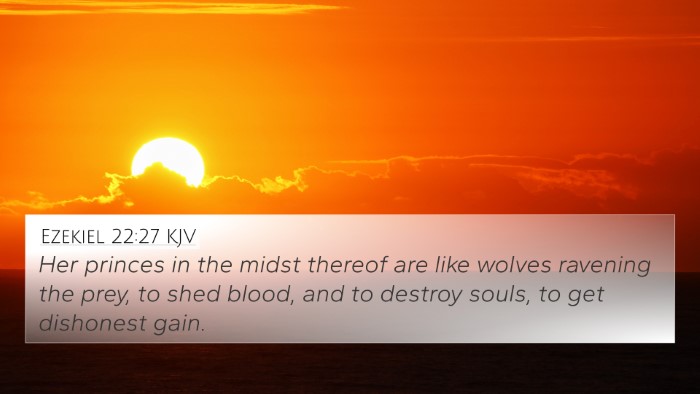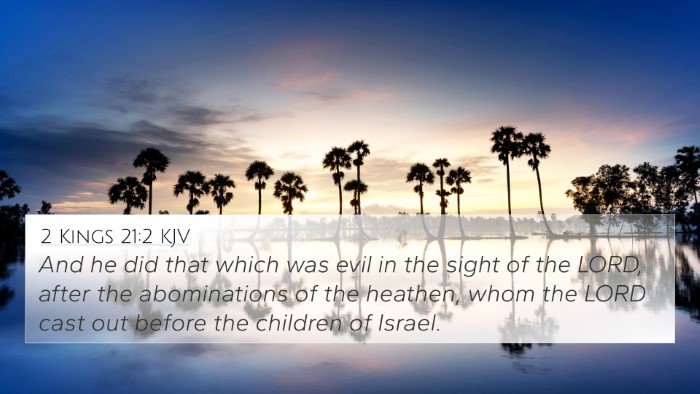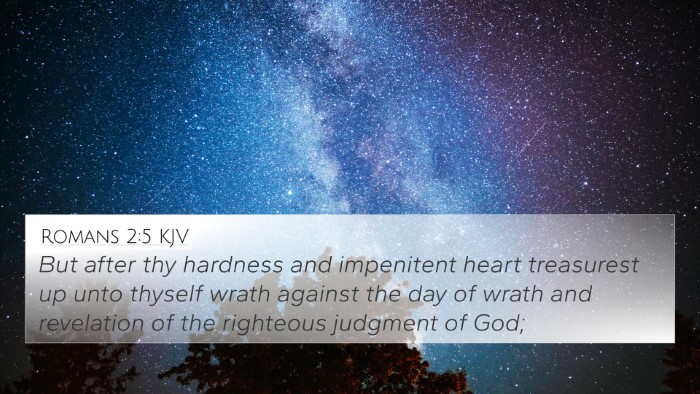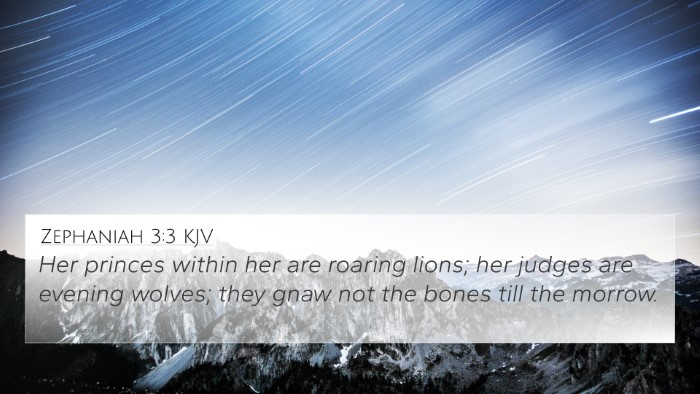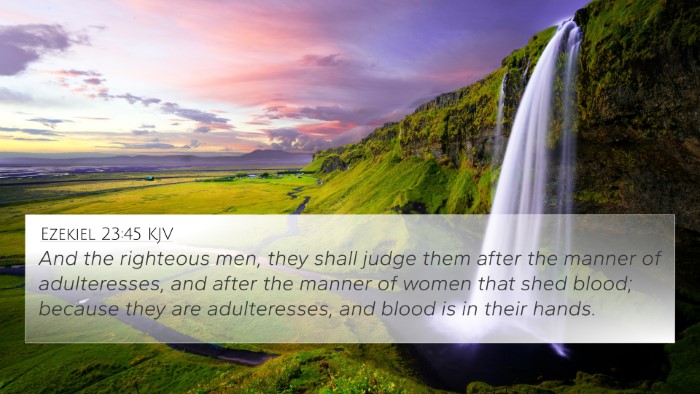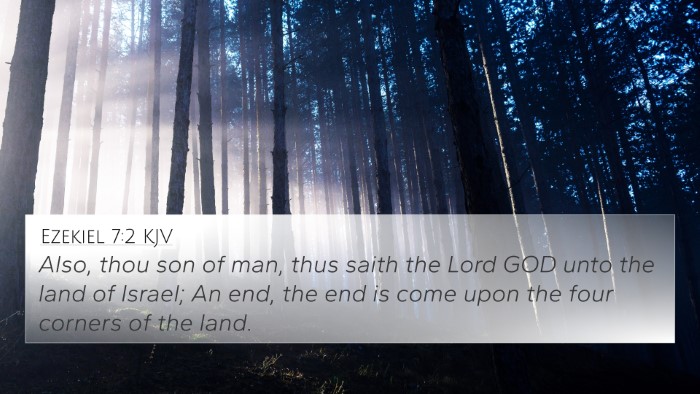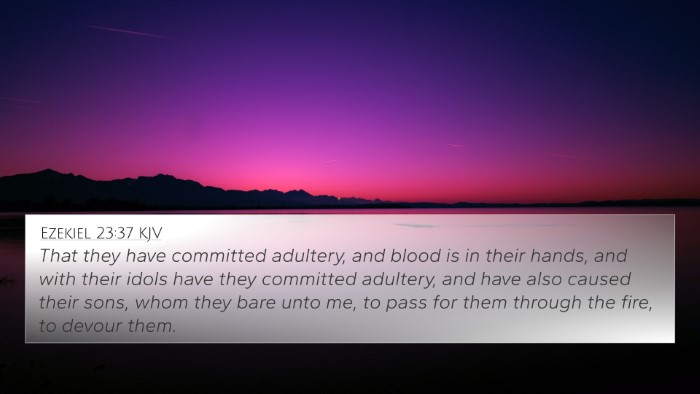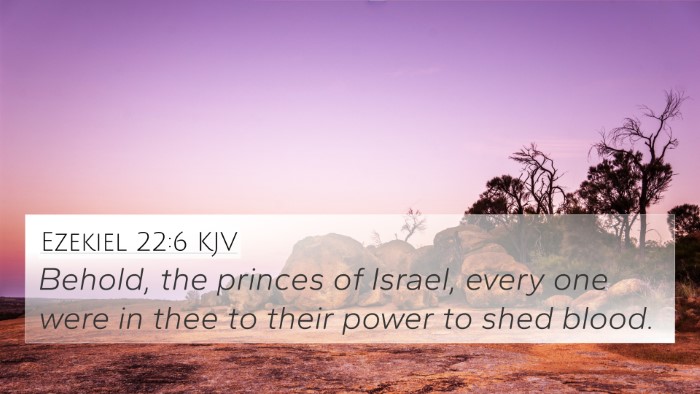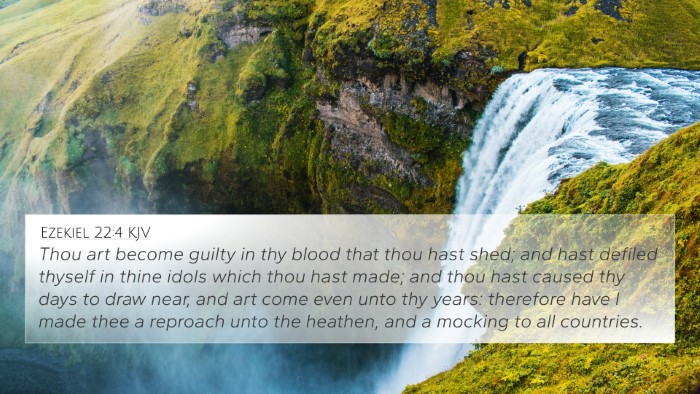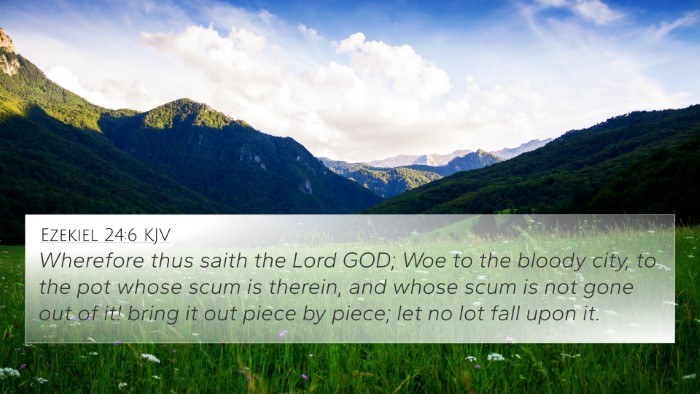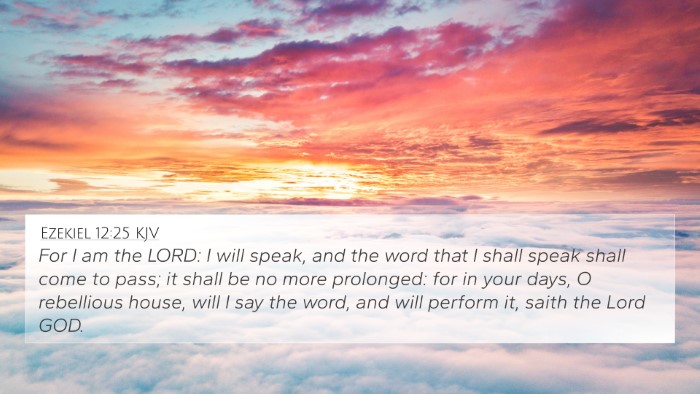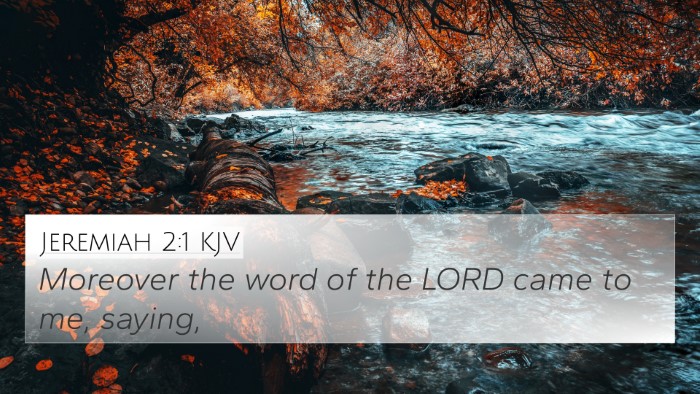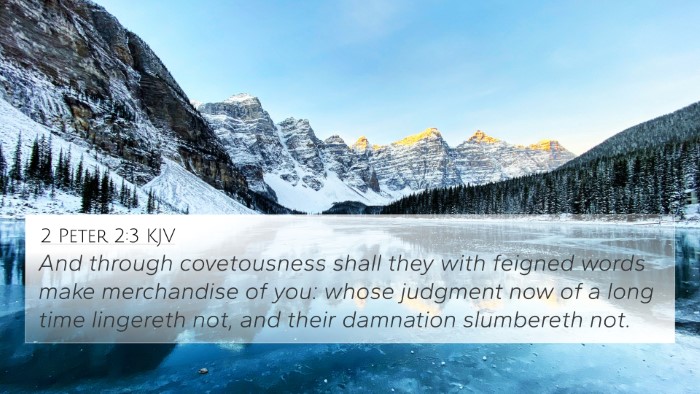Ezekiel 22:3: Understanding the Divine Warning
Ezekiel 22:3 states: "And say, Thus saith the Lord God; The city sheddeth blood in the midst of it, that her time may come, and maketh idols against herself to defile her." This verse serves as a potent reminder of the moral decay within Jerusalem, highlighting the urgent call for repentance and the condemnation of their sins.
Contextual Background
In the book of Ezekiel, the prophet delivers messages of judgment against Israel, particularly Jerusalem. The imagery in this verse speaks to the gravity of their actions, involving violence and idolatry. Hence, it reflects God's displeasure with their practices and His impending judgment.
Interpretation Insights
- Matthew Henry's Commentary: Henry emphasizes the moral implications of shedding blood and how it corrupts society. He points out that the mention of idolatry is a direct violation of God's commands, leading to spiritual decay.
- Albert Barnes' Notes: Barnes provides insight into how the acts of violence and idolatry are intertwined, suggesting that the people’s actions lead to their own destruction. He discusses the concept of bloodguiltiness and its implications for the community.
- Adam Clarke's Commentary: Clarke interprets the phrase "maketh idols against herself" as a self-destructive behavior, indicating that the people were not only sinning against God but also harming their own welfare and future.
Thematic Connections
This verse can be analyzed through the theme of sin leading to divine judgment. It serves as a warning echoing throughout Scripture regarding the consequences of turning away from holiness.
Bible Cross-References
- Isaiah 1:15: "And when you spread out your hands in prayer, I hide my eyes from you; even when you offer many prayers, I am not listening." This verse highlights God's rejection of hollow rituals that do not stem from genuine repentance.
- Jeremiah 7:30: "The people of Judah have done evil in my eyes… they have set up their abominable idols in the house that bears my Name." This reflects the same theme of idolatry within Jerusalem.
- Romans 1:21-23: "For although they knew God, they neither glorified him as God nor gave thanks to him, but their thinking became futile..." This passage emphasizes how turning away from God leads to foolishness and subsequent judgment.
- Ezekiel 18:30: “Therefore I will judge you, O house of Israel, everyone according to his ways, says the Lord God. Repent, and turn from all your offenses...” This mirrors the call for repentance and the serious nature of sin.
- Psalms 106:38: "They shed innocent blood, the blood of their sons and daughters..." This refers to the historical reality of sacrifices made to idols, indicating moral failure similar to Ezekiel's message.
- Galatians 6:7: "Do not be deceived: God cannot be mocked. A man reaps what he sows." This New Testament perspective correlates with the consequences outlined in Ezekiel.
- 1 John 5:21: "Dear children, keep yourselves from idols." This verse urges believers to reject idolatry, directly connecting to the issues addressed in Ezekiel.
Conclusions and Applications
The message in Ezekiel 22:3 is timeless, emphasizing the need for moral integrity and the danger of apostasy. It serves as a call for self-examination and reliance on God's guidance to avoid the pitfalls of idolatry and violence.
In summary, the themes of moral decay, divine judgment, and the call to repentance resonate throughout Scripture, connecting to numerous other passages that illuminate the gravity of sin and the importance of adhering to God's commandments.
Tools for Further Study
For a deeper understanding of these connections, consider utilizing tools such as:
- Bible concordance
- Bible cross-reference guide
- Bible reference resources
Final Thoughts
By engaging with cross-referenced verses and interpreting the connections between them, believers can enhance their understanding of the implications of Ezekiel 22:3, fostering a richer spiritual life and commitment to God's ways.
